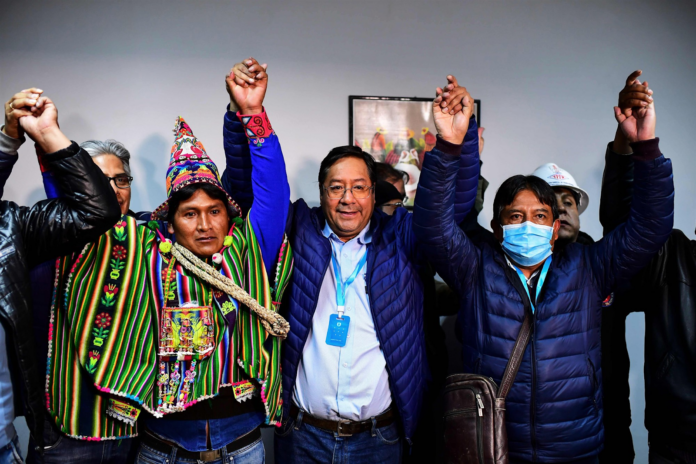Credit: Ronaldo Schemidt / AFP – Getty Images
By: Michael Ge
On October 18th, Bolivian held its first general election since the disputed 2019 election. Luis Arce and his running mate David Choquehuanca, of the Movement for Socialism party (MAS-IPSP) won the election with 55.1% of the vote. The general election was originally scheduled for May 3rd, but it was delayed to September 6th and then to October 18th. Arce had previously served as Morales’s Minister of Economy and Public Finance. While Choquehuanca had previously served as Chancellor of Bolivia. Arce received almost double the votes of the closest candidate, Carlos Mesa of the FRI, a center left party. MAS-IPSP was also the ruling party in Bolivia before the 2019 political crisis. MAS-IPSP also held on to its majorities in the Chamber of Deputies and Senate of Bolivia.
In 2019, the election results were disputed and protests erupted. And many people, including then-President Evo Morales, considered the 2019 crisis to have been a coup. The events resulted in Evo Morales being forced into exile and interim President Jeanine Anez took over leadership of the country. Anez lead a government that was accused of multiple human rights abuses and discrimination against Bolivia’s indigenous community. Anez’s candidacy for president failed to gain support and she dropped out of the election and accepted the results of the election in a tweet. International observers from the United Nations and the Organisation of American States confirmed that there were no signs of electoral fraud in the election.
Arce and MAS-IPSP’s victory is a major victory for the left in Bolivia. It seems that Arce will seek to continue the left wing policies of Morales while also trying to unite a divided country. Arce’s policies as Minister of Economy and Public Finance had helped lift many Bolivians out of poverty and had also led to economic growth. Arce and Choquehuanca will be sworn in as President and Vice President, respectively, on November 8th.

